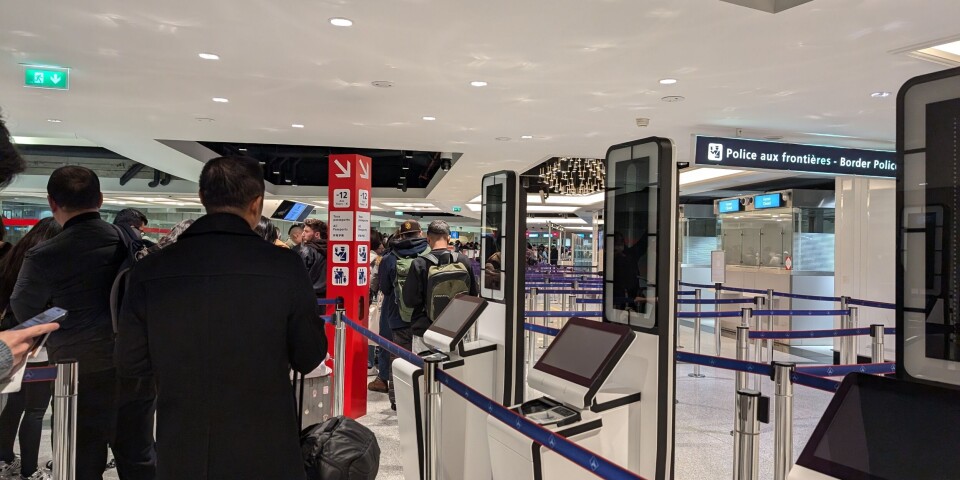-
Drive to bring 100% fibre coverage to Brittany
Copper-based internet is being phased out even on remote islands
-
Warm days ahead: French weekly weather outlook March 31 - April 4
Temperatures of 20C are expected towards the end of the week across France
-
Second runway at Bordeaux airport likely to be renovated not closed
Move may lead to backlash from local people who are unhappy due to the noise levels
Farmers from across France blockade roads in protest
Farmers across France have come together in tractors to block roads into Paris and other major cities to protest against poor economic and social conditions in the farming community.

More than 1,000 slow-moving tractors from across the country are expected to converge on the capital today, with farmers blocking the roads and protesting under the banner of unions FNSEA and Jeunes Agriculteurs (JA).
All major motorways and national roads into Paris are expected to be disrupted, as are many motorways and major links in the Rhône-Alpes region near Lyon; the Auvergne on the A71 near Clermont-Ferrand; and in the Vaucluse and Toulouse (Occitanie).
At the time of writing, tractors and farmers are currently on the Champs-Elysées, where farmers have unloaded hay bales across the road, and are demanding an audience with President Emmanuel Macron. Others are still on the A6 , and have dumped tyres across the road to block it.
CRS officers have been attempting to block protesters and clear up the hay - without much success so far.
The farmers, their families and supporters are seeking to put pressure on big supermarkets and also the government, to raise awareness of the daily struggles the farmers say they are facing.
Major grievances
Key grievances include practices by large supermarkets that they say threaten the industry, as well as rising and often-violent action from anti-meat campaigners.
A new law - dubbed the “Egalim” food law (from Etats Généraux de l'Alimentation) - was brought in at the beginning of the year, and was intended to increase farmer revenue by balancing out commercial links, but most farmers have said it has made little difference to their income.
Many farmers say they are struggling to make ends meet. A 2017 report from Insee (Institut National de la Statistique et des Études Économiques) found that 20% of farmers in France said they had declared zero revenue that year.
Another protester, whose farmer husband tragically committed suicide in 2017, is also trying to raise awareness of the difficult conditions many farmers face, and the impact this is having on their lives.
Speaking to Le Figaro newspaper, she said: “One farmer kills themselves everyday in France. How many will it take before we do something? For me, it’s too late. But we cannot leave other farmers like this.”
Christine Lambert, president of the FNSEA speaking to the Agence-France Presse, said: “This new protest is to push on the efficiency of Egalim...we [also] want big supermarkets to start playing fair, and not do what Lidl did two days ago, which is to sell steak haché at €6.75 per kilo, which is a scandal.”
She added: “It’s like when Carrefour sold organic milk at €0.87 last year.”
The farmers are demanding a response from President Macron, with some unions critical of the relaxing of certain trade agreements within the EU, which have reportedly increased the number of farming and food imports to France.
One farmer from Essonne spoke to news source BMFTV: “Today, we feel that it is necessary to come to Paris with our tractors. We have the impression that our message will not be heard unless we bring our tractors to Paris.
“We must be ready to annoy a few Parisians, as our message must be heard. Macron must respond to our questions, and measures must be put in place so we can move on the issues.”
Another farmer, Guillaume Moret from Val-d’Oise (Île-de-France), said: “The main motivation for our anger is that we have the feeling that we have been abandoned both by politics and society. There are a lot of criticisms directed at farmers through lack of knowledge of our work.”
Quentin Le Guillous, farmer in Houdan (Yvelines), said: “We want our farming and food to be increasingly clean, but we are importing more and more processed products. We are having trouble seeing how we [French farmers] fit in to this.”
French farmers are not the only ones to mount a protest such as this; coincidentally, yesterday several thousand German farmers held a similar demonstration in Berlin, with their grievances focused on a new government plan to reduce the use of pesticides and chemical fertilisers in the country.
Stay informed:
Sign up to our free weekly e-newsletter
Subscribe to access all our online articles and receive our printed monthly newspaper The Connexion at your home. News analysis, features and practical help for English-speakers in France
























